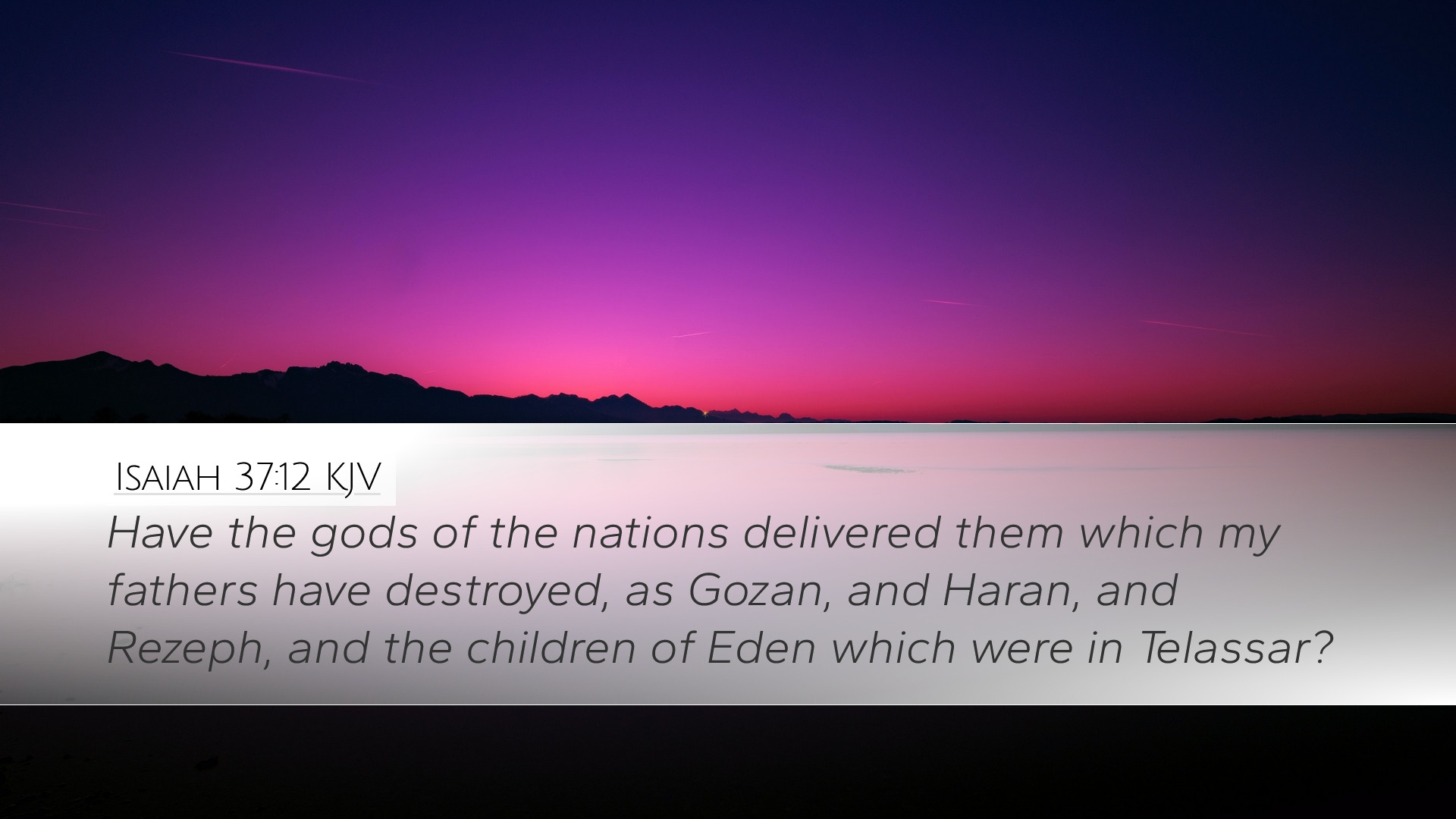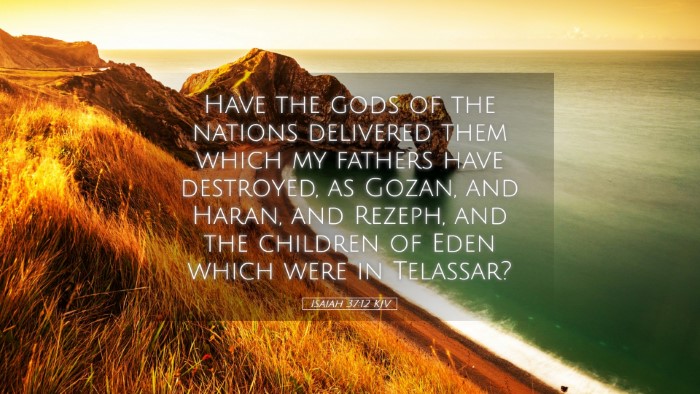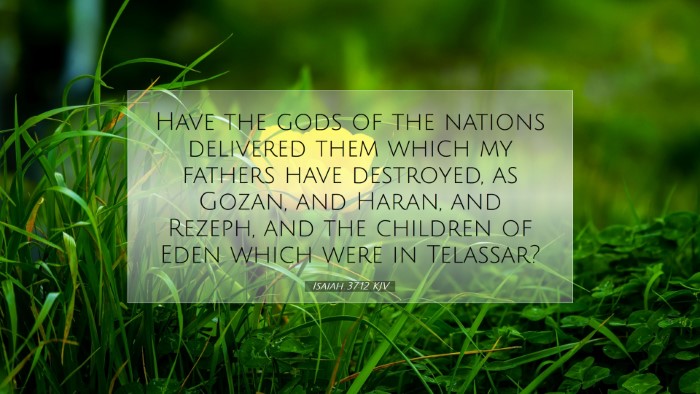Commentary on Isaiah 37:12
Verse Context: Isaiah 37:12 states, "Did the gods of the nations deliver them which my fathers have destroyed, as Gozan, and Haran, and Rezeph, and the children of Eden which were in Telassar?" This verse is part of an account where King Hezekiah receives a threatening letter from the Assyrian king Sennacherib, which challenges the God of Israel and seeks to instill fear in the hearts of believers.
Historical Background
Assyrian Conquests: The verse references nations and cities that were conquered by the Assyrians and their gods' inability to save them. Understanding the historical context of Assyrian actions against Israel is crucial for a thorough exegesis. The Assyrian Empire, known for its military might, sought to assert dominion over Israel and Judah, leading to a crisis of faith among the Israelites.
Faith Amidst Adversity: Hezekiah’s assertion serves to fortify the faith of those who are beleaguered by the threats of the Assyrians. His message emphasizes that the power of God is unmatched even in the face of overwhelming odds.
Theological Insights
Divine Sovereignty: Matthew Henry illustrates that the impotence of worldly gods, contrasted with the Almighty God of Israel, is a recurrent theme throughout Scripture. This serves as a reminder to believers that ultimate deliverance comes not from human strength or the might of false gods but solely from the Lord.
Comparative Analysis of Deities: Albert Barnes highlights the rhetorical nature of Hezekiah’s argument. By asking if the gods of nations delivered their people, he implies that the God of Israel is superior. The rhetorical question serves to reinforce the futility of reliance on idols, showcasing the omnipotence of Yahweh.
Inspirational Assurance: Adam Clarke reflects on the verse as a profound assurance for worshippers. He notes how God’s track record of deliverance in Israel’s history is a proof point for present faith. Believers are reminded of God's historical actions and are encouraged to trust Him in their current trials.
Practical Applications
Encouragement in Trials: For pastors and lay leaders, this verse can serve to embolden congregations facing contemporary challenges. Just as Hezekiah sought to reaffirm his people’s confidence in God amidst a physical threat, modern-day believers are encouraged to place their trust in God rather than the seemingly powerful forces that oppose them.
Teaching about Idolatry: This verse provides a meaningful reference point for studying the nature of idolatry. This can lead to powerful sermons on contemporary idols that believers may face, such as wealth, power, or societal approval—fales gods that cannot offer true deliverance.
Faith-Based Leadership: Church leaders can reflect on Hezekiah's example of faith in securing God’s assistance, applying it to their decision-making processes in ministry. Their reliance on God can inspire both congregational and individual faith journeys.
Reflections from Public Domain Commentaries
-
Matthew Henry:
Henry emphasizes that this historical example bears significance not just in the ancient context, but for believers today as they grapple with spiritual threats. His reflections encourage believers to observe how utterly dependent other nations were on their idols, a dependency that was rendered useless in the face of divine judgment.
-
Albert Barnes:
Barnes proposes that Hezekiah's words serve as a challenge to faith, prompting believers to compare God’s deliverance to the salvific claims of contemporary idols. His exposition encourages readers to explore God’s intervention in their lives as a testament to His sovereignty.
-
Adam Clarke:
Clarke’s insights focus on God’s historical faithfulness and His unwavering support. He encourages an introspective faith journey, urging believers to recount moments when God intervened in their lives, thus reinforcing their trust as they face future challenges.
Conclusion
This commentary on Isaiah 37:12 underscores the vast themes present in the Scripture: the futility of idolatry, the power of God’s sovereignty, and the assurance it provides to believers amid trials. The reflections from esteemed commentaries serve to deepen understanding and foster faith, equipping pastors, students, theologians, and scholars for spiritual growth and edification.


